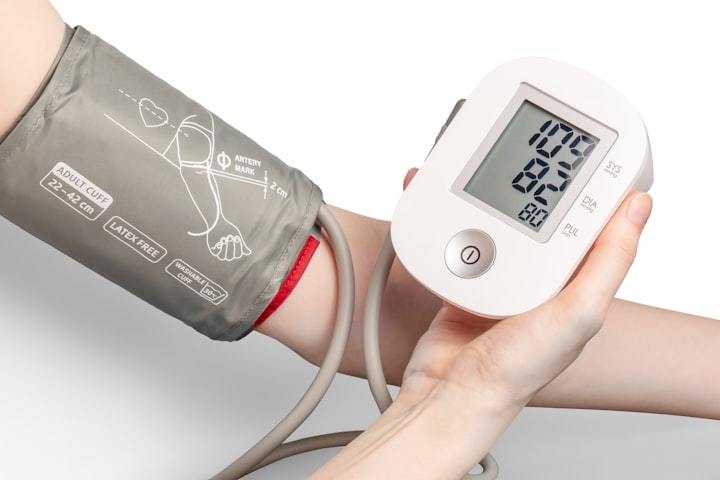The Relationship between Weight Loss and Blood Pressure: Understanding the Health Benefits
How Losing Weight Can Significantly Lower Blood Pressure Levels and Improve Overall Health

High blood pressure or hypertension is a condition that affects millions of people worldwide. It is a chronic medical condition that can cause severe damage to the heart, kidneys, and blood vessels. Several factors can contribute to the development of high blood pressure, including poor diet, sedentary lifestyle, obesity, and stress. In this article, we will discuss how weight loss affects blood pressure and its associated health benefits.
What is hypertension?
Hypertension is a chronic medical condition characterized by high blood pressure levels in the arteries. Blood pressure is the force exerted by the blood against the walls of the arteries as it circulates through the body. High blood pressure can lead to several health complications, such as heart disease, stroke, and kidney failure.
How does weight affect blood pressure?
Obesity is a significant risk factor for the development of hypertension. The excess weight puts additional pressure on the blood vessels, leading to increased blood pressure levels. According to the American Heart Association, losing just 5% to 10% of body weight can significantly lower blood pressure levels in overweight individuals. Furthermore, weight loss can reduce the risk of developing hypertension in the first place.
What are the health benefits of weight loss?
Weight loss has several health benefits, including:
Reduced risk of heart disease: Losing weight can significantly reduce the risk of developing heart disease. This is because weight loss can lower blood pressure levels, reduce bad cholesterol levels, and improve insulin sensitivity.
Improved mental health: Obesity is associated with an increased risk of depression and anxiety. Losing weight can improve self-esteem, mood, and quality of life.
Lower risk of diabetes: Obesity is a significant risk factor for the development of type 2 diabetes. Losing weight can improve insulin sensitivity and reduce the risk of developing diabetes.
Improved sleep quality: Obesity is associated with sleep apnea, a condition characterized by interrupted breathing during sleep. Losing weight can improve sleep quality and reduce the risk of sleep apnea.
Improved joint health: Excess weight can put additional stress on the joints, leading to joint pain and osteoarthritis. Losing weight can reduce joint pain and improve joint health.
How to lose weight?
There are several ways to lose weight, including:
Diet: A healthy diet is crucial for weight loss. It is essential to consume fewer calories than you burn to lose weight. A balanced diet that includes lean protein, complex carbohydrates, and healthy fats can help you lose weight.
Exercise: Regular exercise is essential for weight loss. It can help you burn calories, build muscle, and improve overall health. Aim for at least 30 minutes of moderate-intensity exercise per day.
Lifestyle changes: Making lifestyle changes can help you lose weight. For example, reducing stress levels, getting enough sleep, and avoiding smoking can all contribute to weight loss.
Weight loss supplements: Weight loss supplements can help you lose weight. However, it is essential to choose supplements that are safe and effective. Consult with your healthcare provider before taking any weight loss supplements.
Conclusion:
In conclusion, weight loss is an effective way to lower blood pressure levels and reduce the risk of hypertension. Losing just 5% to 10% of body weight can significantly lower blood pressure levels in overweight individuals. Furthermore, weight loss has several health benefits, including reduced risk of heart disease, improved mental health, lower risk of diabetes, improved sleep quality, and improved joint health.
To lose weight, it is essential to follow a healthy diet, engage in regular exercise, make lifestyle changes, and consider weight loss supplements. If you are overweight or have hypertension, consult with your healthcare provider to develop a weight loss plan that is safe and effective for you.
About the Creator
Luth Espindola
"Unlock a world of knowledge and explore new perspectives with every read. Join us now."






Comments
There are no comments for this story
Be the first to respond and start the conversation.